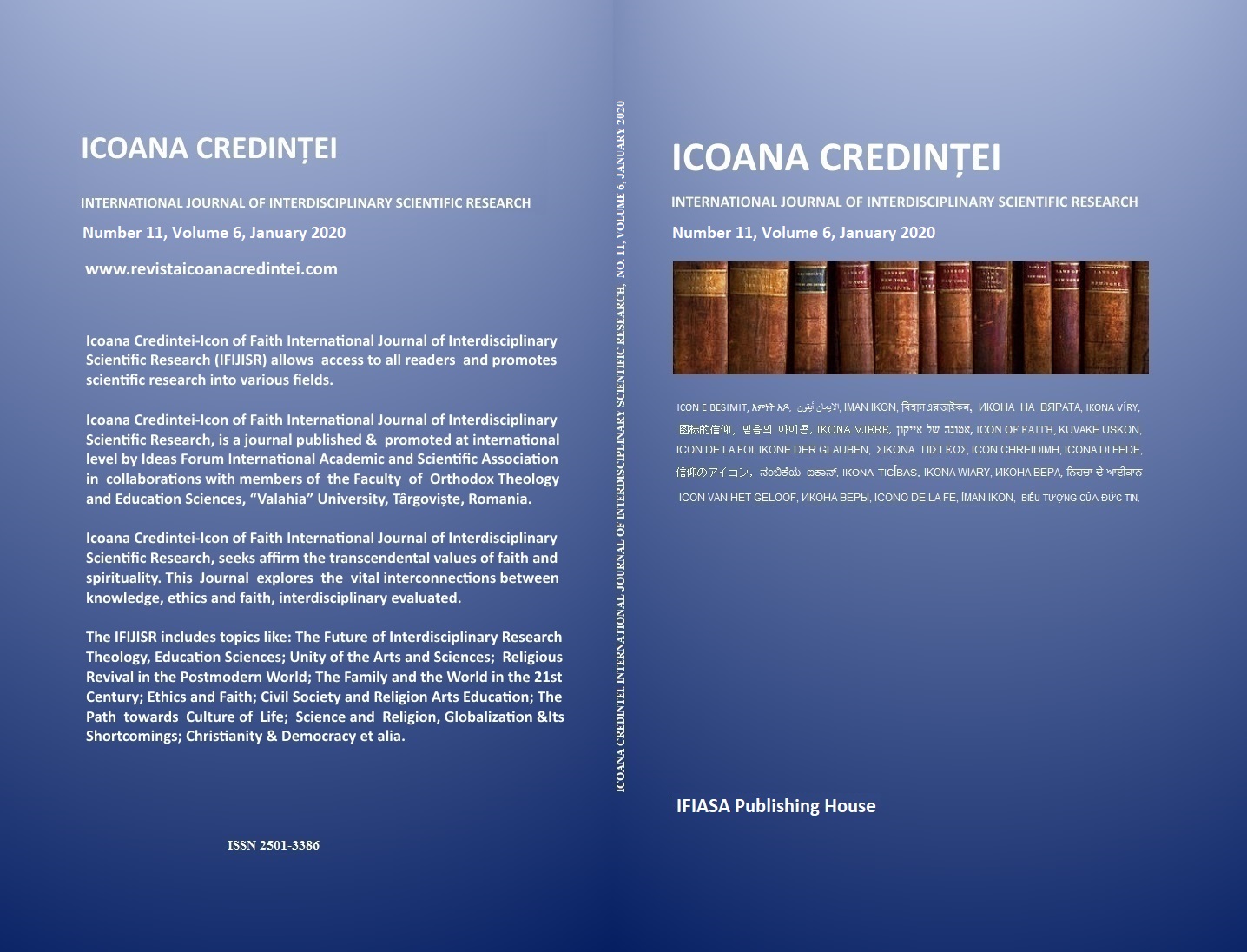THE BUDDHIST CONCEPT OF NIRVĀṆA AND THE VISION OF DEIFICATION OR PERFECTION IN CHRISTIANITY
THE BUDDHIST CONCEPT OF NIRVĀṆA AND THE VISION OF DEIFICATION OR PERFECTION IN CHRISTIANITY
Author(s): Alexandru-Corneliu ArionSubject(s): Christian Theology and Religion, Theology and Religion, Comparative Studies of Religion, History of Religion
Published by: Ideas Forum International Academic and Scientific Association
Keywords: Buddhism; nirvāṇa; deification; heaven; Jesus Christ; Buddha, saṃsāra; suffering; boddhi; perfection;
Summary/Abstract: The present paper tackles two concepts, peculiar to Buddhism and Christianity, which seem to be so close, but are, in reality, so different: nirvāṇa and deification. Buddha considers suffering as a characteristic reality of life as a whole and proposes the state of boddhi, as a way to escape from it, realizing or entering the state of nirvāṇa. Even though there are many interpretations of that, broadly, nirvāṇa represents merely the Absolute; it is the ”Nothing” of everything that has appeared; it is what transcends everything that man can experience, it is then, the Transcendent itself. Undoubtedly, nirvāṇa is the goal for which Buddhists strive. Attaining nirvāṇa is not like 'going to heaven' as Christians often understand it. In its turn, deification consists in acquiring not the divine nature, which is impossible, but the divine way of being, as persons in communion. Because God’s way of being has been introduced into humanity by Jesus Christ, deification is found by sacramental union with Him. The idea of salvation as union is nowhere more thoroughly or more dazzlingly fulfilled than in the doctrine of the theosis (‘deification’) of the human person. Deification can be understood as ‘Christification’, or becoming ever-more Christ-like. The nirvāṇic eternity is always at odds with the eternity of the Christian communion, because it is empty of content, and therefore monotonous. The being anonymity realized in the state of mokṣa or nirvāṇa is incompatible with the perfection of the human person, in the context of deification.
Journal: ICOANA CREDINTEI. International Journal of Interdisciplinary Scientific Research
- Issue Year: 6/2020
- Issue No: 11
- Page Range: 48 - 66
- Page Count: 19
- Language: English

